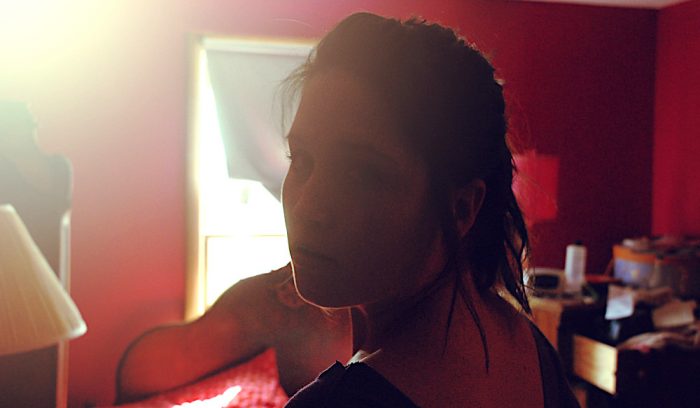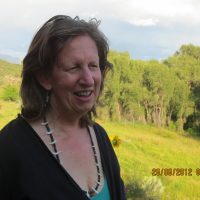*Editor’s Note: This piece is part of a series—lucky you. Head to the author’s profile to continue reading, or start with Chapter One.
~
There’s another reason I decide to stay in Cleveland, in my father’s house.
I’m broke, sick, and drowning in credit card debt.
Sickness has become a story in my life too—an expensive story that seems to have no end.
When I arrived for Passover, I had a stack of credit card bills from out-of-pocket medical expenses. I had to choose between credit card payments and rent. At my dad’s house, I don’t have to pay rent.
Debt was one problem in my life; the bigger problem was I couldn’t get well.
I tried everything. And everything seemed to work for a while, until I got sick again.
Treatment for chronic Lyme disease is expensive. Not functioning for months on end is expensive. Without credit cards, I wouldn’t be able to survive, but now I can’t make the payments. I don’t have enough money coming in, and I can’t tell my dad the truth about it.
Financial responsibility was my dad’s middle name. A child of immigrants who fled pogroms in Russia, he worked hard all his life to support his family. He was born in 1925—a few years before the Great Depression. My father didn’t believe in debt.
I was scared to tell my father about my credit card debt, like I’d always been scared to tell the truth about my life in that house. But my body always told the truth, and illness was one of the ways it spoke.
In response to my mother’s hospitalizations, I became a quiet child.
My sister and I shared a bedroom. I’d sit on my bed with its yellow bedspread, a book in my hands. After a while, Laurie’s frustration took over and she’d grab my shoulders, shake me, and yell, “Why won’t you talk?”
I had no answer.
I couldn’t articulate the reason for my silence, but I was often sick. Strep throat every winter. Bronchitis that stretched for months. Mysterious digestive distress that landed me in the hospital.
I did well in high school, got excellent grades, but also developed a habit of getting sick before exams, and not turning in papers. In college, I was healthy, though often ill when papers were due.
The year after I graduated college, six weeks after my mother’s aneurysm, sickness turned into a story that took over my life.
It’s been two months, and my Mom is still in ICU. Still in a coma. She survived the second bleeding but hasn’t yet had the surgery to tie off the end of the aneurysm, the surgery she must get through in order to live.
I spend my days at the hospital and at a nearby coffee shop. The crisis has settled into a routine. ICU has become familiar. The waiting room, the short visits, the nurses who are exceptionally kind, the neurologist who makes a rare appearance.
A decision has been made: I’ll stay in Cleveland for the summer to be with my family. My car and my things are still in New York. I make a trip back to get them.
My car needed a repair; my housemate Alyssa took it to the shop while I was in Cleveland. It’s waiting for me when I get to New York. I need to pick it up. I borrow a bike from Laura, another housemate in the apartment where I’ve sublet a room. It’s a Green Raleigh 10-speed— the exact same bike I own and love.
I always loved riding my bike. In New England, where I went to college, my bike was my freedom—my wings. I wasn’t an athlete but thought nothing of riding 50 miles in an afternoon. One summer, my college sweetheart and I rode 90 miles from Amherst to Cape Cod, then rode on bike trails through the dunes, listening to the sea, catching sight of the waves around every bend.
But this is Brooklyn. I’m not used to riding in the city. It’s a short ride from the apartment in Park Slope to the mechanic, and I don’t put on a helmet.
I turn down a narrow one-way street. Cars are parked on each side. Someone has unplugged a fire hydrant. Kids play in the water. It’s June, in New York, a hot day. The street’s like a party, kids everywhere, cars everywhere, water everywhere.
Water on the street makes it tricky to navigate with my bike. I see a car coming at me. A yellow Mustang with the top down. I swerve to get out of the way.
My brakes don’t work. He doesn’t stop.
I land on the pavement, flat on my back in a pool of water. The bone of my left leg sticks out, extended above me. A crowd of people gathers around. A priest kneels behind me and holds my hand. He smiles. I look away from him and back at my bone. Bones are supposed to be inside the skin, but there’s mine, exposed to the air, spewing blood.
The EMTs arrive. Before they put an oxygen mask on my face, a young woman with curly black hair, in a police uniform, asks if I want a bullet to bite. “It’s going to hurt,” she says, “when they pick you up to move you.” They have to put me on a stretcher, to get me in an ambulance, to take me to a hospital.
I look at her and nod, still holding the priest’s hand. He’s a kind looking man with light brown hair and a warm smile. So many smiles surround me. An endless supply. Infinite quantities of kindness. I give the priest Alyssa’s phone number. She and my housemates are the only people I know in Brooklyn.
The day is hot, but my T-shirt is wet. Plus, I’m in shock. I’m shivering when I get to the hospital. In the emergency room, I ask for blankets. Warm, heated blankets are wrapped around me. Alyssa, Shatzi, Laura, and Joannie stand around my bed while I wait for a room to become available. I’m never alone in this city where I know almost no one.
There’s always someone to hold my hand.
~
After the car accident, I couldn’t get well. Over the next few years, I became severely chemically sensitive, then I developed Chronic Fatigue Syndrome. But it wasn’t until I woke up one morning unable to use my hands that I got a diagnosis of Lyme disease. By the time I knew I had Lyme, it had been in my system a long time.
“Old Lyme” is what one of my doctors called it, and old Lyme is hard to treat. And it was complicated when I got carbon monoxide poisoning; and it was complicated by a breathing-related sleep disorder; and it was complicated, I finally saw, by the ways I’d learned to be sick as a way to protect myself from being hurt by all that was happening in my mother’s life, and how her life had an impact on mine.
“Don’t go away, Mommy—don’t go—”
“Don’t try to kill yourself again…”
Don’t become someone who scares me…
Don’t Don’t Don’t
But I couldn’t say that. I couldn’t say any of that. All I could do was hold my tears inside, where nobody could see them. The tears started to form crystals inside me, and the crystals grew hard and became walls around my heart and my lungs. And then I couldn’t breathe so well, and sickness took up residence in my body.
Sickness was so much easier to understand, to explain, to live with, than the endless abyss of loss.
~
“The truth about our childhood is stored up in our body, and although we can repress it, we can never alter it. Our intellect can be deceived, our feelings manipulated, and conceptions confused, and our body tricked with medication. But someday our body will present its bill, for it is as incorruptible as a child, who, still whole in spirit, will accept no compromises or excuses, and it will not stop tormenting us until we stop evading the truth.” ~ Alice Miller












Read 2 comments and reply